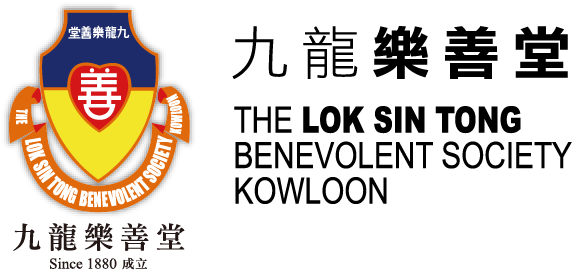Research and survey reveal that moving into social housing improves personal, family, and children well-being / Research and survey reveal that moving into social housing improves the well-being of individuals, families and children
The Lok Sin Tong Benevolent Society, Kowloon has commissioned the School of Nursing at The University of Hong Kong (HKU) to conduct research and analysis on social housing to review the effectiveness of “LST Housing”.
The Professor of the School of Nursing, and the Deputy Director of HKU Primary Healthcare Academy, Professor Kelvin Wang Man Ping, who is in charge of the research, announced the statistics. The first part of the research was conducted in August 2022 through a cross-sectional survey, interviewing residents living at “LST Housing” sites including Lok Sin Tong Primary School, Sung Wong Toi Road Modular Social Housing which are funded by the Government, as well as refurbished “Tong Lau” in Lai Chi Kok Road and Liberty Avenue, Mong Kok. Among the 109 surveyed households and106 assessed children, 69.4% of the households said the family income improved. 59.6% of children’s relationship with their parents improved, while another 62.6% of children had better education achievement. 84.3% of the children became happier after moving into social housing.
To further understand the effectiveness of “LST Housing”, HKU School of Nursing conducted a longitudinal evaluation on residents applying for the site funded by the Government at Cheung Shan Estate in Tsuen Wan during September 2022 to March 2023. It covers the period when residents apply and move in, as well as their living conditions in the following 6 months. Among all the 145 households, 134 of them completed the baseline survey, and 126 of them completed the 6-month follow-up survey.
The study has utilised validated scales to measure well-being, which is an important indicator for personal and family. It also covers 6 areas including living environment, community environment, family relationship, personal health status, child development and health behaviours.
Regarding the living environment, 75.4% of surveyed residents said their living place was no longer crowded, while 72.2% of them mentioned having more personal space. Another 78.6% of them expressed that their place had better facilities and more space. As for the community environment, 100% of respondents said the site’s public open space had good hygiene, and 100% of them found the public facilities good. 92.9% of them expressed that the community support was good, and another 97.6% said they had a good relationship with neighbours. The mean scores for the family communication quality and well-being elevated to 7.16 to 7.44, while the percentage of experiencing anxious symptoms dropped by 18.6%, and those having depressive symptoms declined by 22.4%.
According to the World Health Organization Well-Being Index (WHO-5), the well-being of low-income families increased after moving into “LST Housing”, with the score elevated from 38.10 to 41.17. Also, parents perceived children became happier.
Professor Wang concluded the research and noted that many surveyed “LST Housing” residents lived at subdivided flats sized at only some 100 square feet, or inadequate housing such as rooftop houses. He said, “The study has sufficiently demonstrated that social housing ‘LST Housing’ is comprehensive and effective in increasing well-being, compared to other intervention points with the same intention. There are enhancements in family communication quality and well-being, partner relationship and family support. It improves the anxious or depressive symptoms in residents, enabling them to achieve a healthy life. Parents are also delighted to see children becoming happier and having improvement on their behavioural and psychological status.”
Under Secretary for Housing Victor Tai Sheung Shing said, “Acknowledging that the living environment has significant impacts on the fate of an individual and even the whole family, providing a living environment where people enjoy and thrive has been the primary task of the Housing Bureau. Apart from proactively assisting every non-governmental organisation to develop and operate transitional housing projects, we are also committed to utilise new technology, new construction methods and innovative thinking to formulate sound housing policies. As transitional housing development is in full swing, this research has given us a much-needed boost. In addition to recognising the value of transitional housing, more importantly, it also provides us a comprehensive understanding of how transitional housing has improved residents’ physical and mental health, as well as their quality of life. It provides insights on the directions of formulating future housing policies.
Alice Lau Oi Sze, Chief Executive of the Lok Sin Tong Benevolent Society, Kowloon said, “The government has introduced many livelihood policies and projects supporting the underprivileged community. Evaluation of their effectiveness and research are beneficial in assessing the policies and projects, enabling the government to effectively utilise its resources. The Lok Sin Tong Benevolent Society, Kowloon has been in alignment with government policy and promoted transitional housing for over 5 years. With reference to the research conducted by the HKU’s School of Nursing and the positive feedback from case interviews, it is clear that short-term housing policies can bring well-being to the whole family and individuals from low-income households. Our transitional housing at Wong Yue Tan in Tai Po and Choi Hing Road in Choi Hung funded by Government will be completed successively and residents intake will begin from April. Households living at subdivided flats and low-income residents can apply through the Housing Bureau’s transitional housing online platform.”













